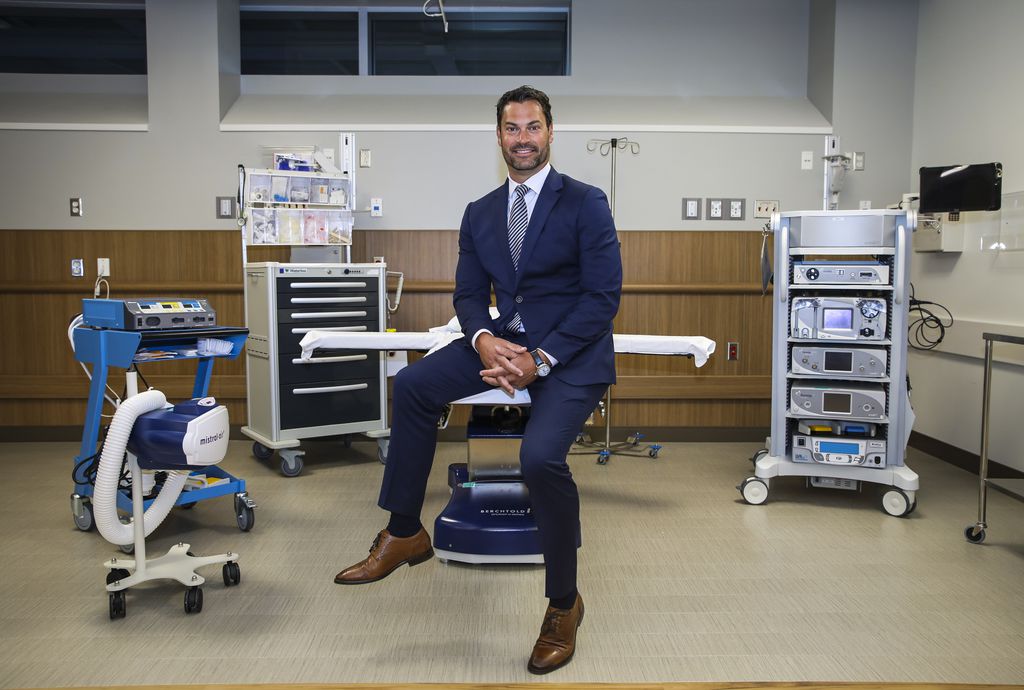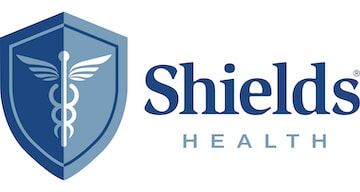Click here for the original Boston Globe article.
With a new president, Shields Health Care pushes deeper into outpatient surgery
Peter Ferrari is the first person not named Shields to hold the job.

At Shields Health Care Group, it has always been a family affair.
Thomas F. and Mary Shields started their nursing home business in the early 1970s, expanded over the next decade into dialysis centers, and in 1986 hit on what became the bread and butter of the Braintree-based private company: more than 30 clinics throughout New England that provide medical imaging and radiation therapy.
The family remained in charge following the death of Thomas F. in 2015, with the youngest son, Thomas A. Shields, taking over as chief executive, and his brother Jack rising to president. Jack parted ways with his brother to launch a pharmacy services company in 2012, but their sister Carmel is an executive vice president at Shields Health Care.
The family is branching out again, but this time the effort is being overseen by someone not named Shields. In November, the company promoted Peter Ferrari to president, the first nonfamily member to hold the job, and his responsibilities include building out its ambulatory surgery centers, where hip and knee replacements and other procedures are done on an outpatient basis at rates below those charged by hospitals.
Shields teamed up with UMass Memorial Health Care and Reliant Medical Group two years to open the first ambulatory surgery site in Massachusetts since the state lifted its moratorium on the facilities in 2017. The freeze had been in force since the early 1970s, a response by the Legislature to concern from community hospitals about losing revenue to outpatient centers.
Since opening its initial surgery center, in Shrewsbury, Shields has worked with partners to build facilities in Natick and Medford and has plans to open at least two more by the end of next year.
While Shields was first to jump into the reopened market in Massachusetts, it doesn’t have the field to itself.
In December, Partners HealthCare unveiled a $400 million plan to build three clinics and expand a fourth. The clinics — in Westborough, Westwood, Woburn, and Salem, N.H. — will offer outpatient surgery as well as other services such as primary and specialty care, and imaging. It already offers outpatient services in Danvers, Waltham, and Foxborough.
Partners, which is changing its name to Mass General Brigham, is a formidable competitor, not just because of its well-known hospital brands. The organization has more than 6,000 doctors in its network, the state’s largest, and a big balance sheet to finance construction.
Like Shields, Partners is targeting patients who would prefer to avoid the traffic and parking hassles of getting treatment in downtown Boston. Its new clinics bill at rates below those charged by Partners’ hospitals.
Unlike Mass General Brigham, which builds and owns its satellite clinics, Shields forms joint ventures with doctors and hospitals to open ambulatory surgery centers. The company typically takes a stake of 20 to 25 percent in a facility, which can cost any from $10 million to $30 million to open.
Shields, which has annual revenue of more than $200 million, designs and oversees construction of the clinics and provides staffing and management services — skills it has honed over decades in the imaging business. The doctors and hospitals it partners with bring their medical expertise and reputations.
“This is a natural progression for us,” Ferrari said. “We saw a void in the marketplace.”
Ferrari says growth in the orthopedic segment of the ambulatory market is being driven by three trends: aging baby boomers who want to remain as active as possible, advances in technology that make joint replacements easier and safer to perform, and pressure on providers to lower the cost of services.
He estimated that a knee replacement done at a Shields clinic costs roughly 50 percent less than it would at an average hospital.
“We knocked out 30 percent of our costs from 2011 through 2017,” Ferrari said. “Part of that comes from growth and increasing economies of scale.”
But Shields also adopted Six Sigma, an efficiency and quality-control discipline popularized by Jack Welch when he was CEO of General Electric.
Health care providers have been shifting care to outpatient sites for years, where costs tend to be lower than in hospitals. While clinics may be convenient for patients, their proliferation raises the question of whether increased usage at these centers will ultimately result in higher overall medical spending.
Ferrari, who is 47 and has been at Shields for 15 years, has taken a somewhat unusual route to the top. He grew up in Lexington and earned a bachelor of science degree at the University of Massachusetts Amherst. He went into information technology and within a few years was director of IT at Winchester Hospital.
He got a call one evening in 2005 from a headhunter who asked whether he was interested in making a move.
“I was in my early 30s. I didn’t want to get too comfortable.”
He jumped to Shields.
Ferrari came in as the IT director but within two years was named vice president of operations. In 2010 he was promoted to chief strategy officer, where he worked on market opportunities and developed joint ventures with more than 25 health care partners. Now, as the number two executive, he oversees finance, marketing, and operations.
As you might expect, Ferrari was reluctant to open up about what it’s like being an outsider at a family business. Clearly, he has thrived in the Shields culture of streamlined decision-making.
“We have always been an organization that has remained nimble,” he said. “It allows us to take advantage of opportunities that present themselves in the marketplace. I don’t think you see that as much in a corporate-led business.”
While Mass General Brigham is technically a nonprofit, it’s sprawling and not exactly nimble.
It will be up to Ferrari to to keep at least one of step ahead.
